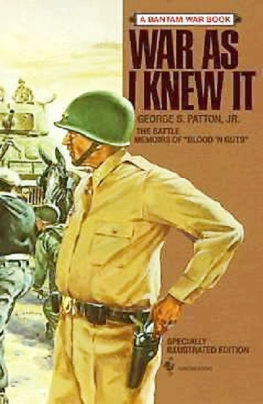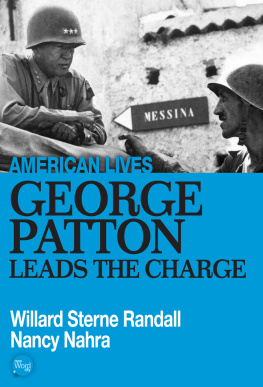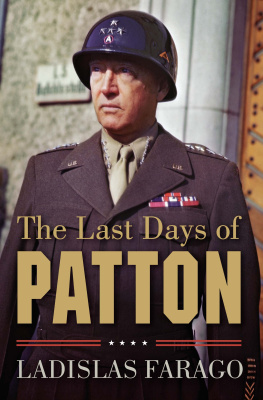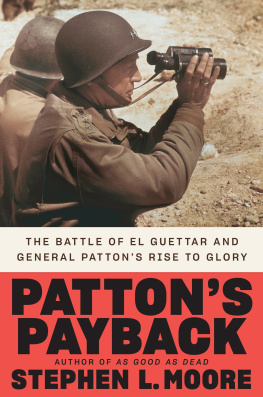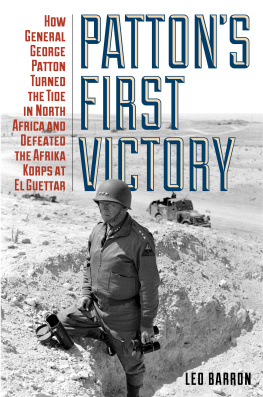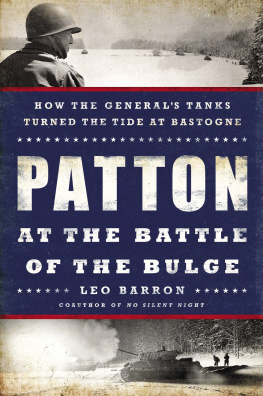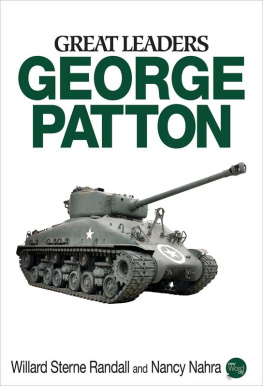PART ONE
OPEN LETTERS FROM AFRICA AND SICILY
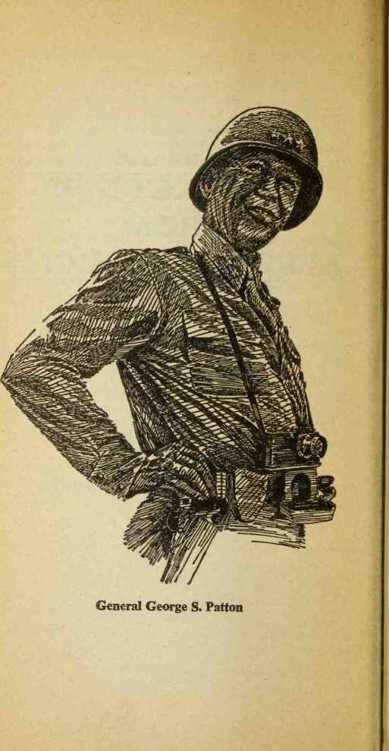
OPERATION TORCH
Although the material that follows on the African Campaign has little to do with the actual fighting, because of the restriction imposed by censorship at the time it was written, a brief summary of the military campaign will perhaps prove useful to orient the reader.
On November 8 , 1942, three task forces, of which Western Task Force was one, landed on the north coast of Africa.1 Its ground forces were commanded by Major General Patton and its headquarters were based on an Army table of organization, to be designated Fifth Army Headquarters after landing. A Western Task Force was composed of three task units: the northern, under Major General Lucien K. Truscott, landing at Port Lyautey; the central, under Major General Jonathan W. Anderson ,
^he following story was told me by the Public Relations Officer of the War Department, Major General A. D. Surles. On the evening of November 7, 1942, his office was invaded by the press. They begged for news; some even threatened the officer in charge. Finally, one said. Come on, boys, lets go to the White House; theyre always good to us there, and the newsmen left the office in a body.
Mr. Stephen Early, the Presidents secretary, met them at the door of the White House office with his usual cordiality, invited them in, and urged them to be seated. When he had done the honors, he excused himself, saying, Ill be back in a minute. Fifteen minutes went by; then half an hour, and the press began to wonder. Someone tried the door, They were locked in.
At last, Mr. Early came in, waving a dispatch. Its all over boys! he shouted. Our troops have landed. Turn on the radio. B. A. P .
Subsequent orders changed this.
landing at Fedhala;1 and the southern, under Major General Ernest A. Harmon, landing at Safi . The Army air elements were commanded by Brigadier General John K. Cannon. The task force consisted of about thirty - two thousand men. The armada was under the command of Admiral H. K. Hewitt until such time as the ground and air forces should be firmly established ashore. The Admiral zigzagged his convoy of approximately one hundred vessels across the Atlantic for fourteen days without incident, and assisted in the landings with bold support and tireless effort on the part of his entire personnel.
The landings were a complete surprise to the French, and the fighting, as evinced by the casualties, was severe. The French Navy, both at sea and on land, fought viciously and heroically to the end.
On November 11, as ground troops were alerted and the planes were over the target, the French signaled Enough, thus missing by minutes She probable destruction of Casablanca, which was only stopped by a miracle of communication .
The peace was signed at Fedhala that afternoon, and General Patton toasted the heroic dead of both nations with the wish that they fight side by side to the destruction of the Nazis.
Rehabilitation of the harbor, roads, and railroads was started at once, and within two weeks American units were training the French in modern weapons of war.
Early in March, 1943, General Patton was ordered to Tunisia to command the II Corps, which had suffered a serious setback at Kasserine Pass. This corps was a part of the Eighteenth Army Group, under General Sir Harold Alexander. The purpose of the operation was to assist the advance of the British Eighth Army, under General Montgomery, by threatening General Rommel's rear in the vicinity of Gafsa. Late in April, Major General Omar N. Bradley took over the II Corps and General Patton returned to his interrupted work of planning the invasion of Sicily.
P.D.H.
General Patton landed at Fedhala.
North Africa
October 29,1942
I am sending this back by Captain Gordon Hutchins of this ship, the Augusta . By the time it reaches home, everything that has happened will be in the papers. We left Norfolk at 8:10 a.m. of the twenty-fourth and the sortie was remarkable for its orderly, and apparently faultless, efficiency. We moved in column through the mine fields and out the swept and buoyed channel, where we joined a line of five columns with the Augusta leading.
November 2
This mess is the best I have ever seen. I fear I shall get fat. I take lots of exercise each morning, including chinning myself and running in place four hundred and eighty steps (one quarter mile) in my cabin. In the morning, at battle stations, we put on rubber belts and tin hats, but as my battle station is my cabin, I dont have to hurry. Then I go up on the flag bridge till it gets light and then have breakfast. Just finished reading the Korana good book and interesting.
Have been giving everyone a simplified directive of war. Use steamroller strategy; that is, make up your mind on course and direction of action, and stick to it. But in tactics, do not steamroller. Attack weakness. Hold them by the nose and kick them in the pants.
November 6
In forty hours I shall be in battle, with little information, and on the spur of the moment will have to make most momentous decisions, but I believe that ones spirit enlarges with responsibility and that, with Gods help, I shall make them and make them right. It seems that my whole life has been pointed to this moment. When this job is done, I presume I will be pointed to the next step in the ladder of destiny. If I do my full duty, the rest will take care of itself.
November 8
Last night I went to bed, dressed, and slept from 10:30. This was hard to do. I went on deck at 2 and saw the Fedhala and Casablanca lights burning, also shore lights. Sea dead calmno swell. God is with us.1
We have had a great day so far and have been in a naval battle since eight. At 7:15, six enemy destroyers came out of Casablanca; two were on fire. All ships in range opened on them and they went back. The Massachusetts had been shelling the Jean Bart for about thirty minutes. I was going ashore at eight and my boat was on the davits with all our things, including my white pistols. I sent an orderly to get them, and at that moment a light cruiser and two big destroyers came out of Casablanca, tearing up the coast close to shore, to try and get our transports. The Augusta speeded up to twenty knots and opened fire. The first blast from the turret blew our landing boat to hell, and we lost everything except my pistols. At about 8:20, enemy bombers attacked the transports and the Augusta went to protect them. Then we went back into the fight with the French ships, and fired hard for about three hours. I was on the main deck when a shell hit so close it splashed water all over me, and later, on the bridge, one hit even closer, but I was too high to get wet. It was hazy and the enemy used smoke well. I could just see them and make out our splashes with our ships all firing like hell and going in big zigzags and curves to keep the enemy from our subs.
Admiral Hall, Chief of Staff to Admiral Hewitt, my Chief of Staff, Colonel Gay, Colonels Johnson and Ely, on the Staff of the Amphibious Landing Force, Atlantic Fleet, my Aides, Jenson and Stiller, and Sergeant Meeks and I went ashore at 12:42, and as our boat left the ship, the sailors leaned over the rail and cheered. We hit the beach at 13:20, getting very wet in the surf. There was still quite a fight going on, but I had no bullets.
Harmon took Safi before dawn, though we did not get the news until noon.
Anderson had both rivers and the high ground by noon and captured eight of the German Armistice Commission. They only heard of the landing at six, so it was a complete surprise.

